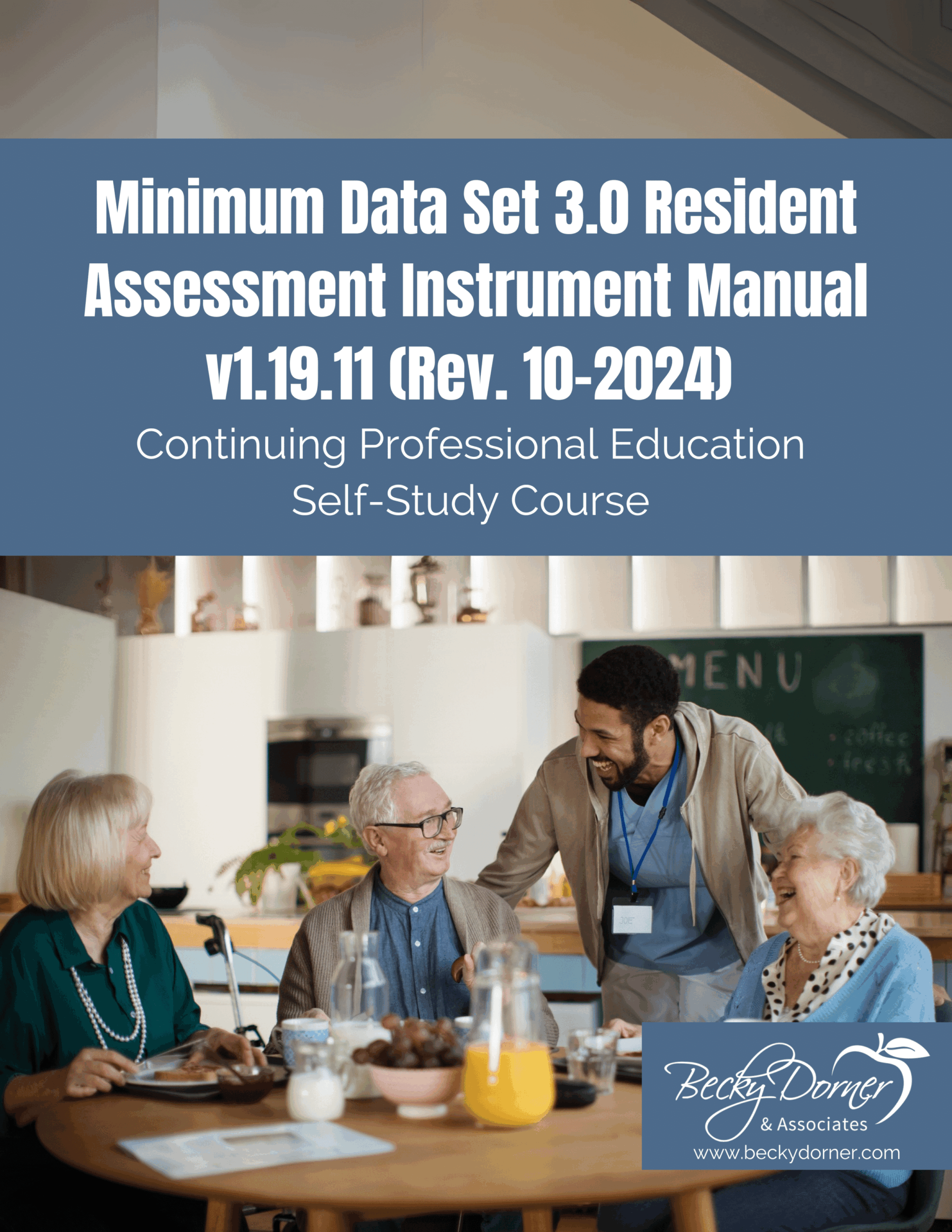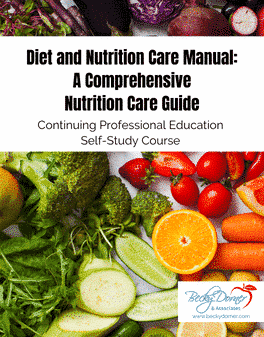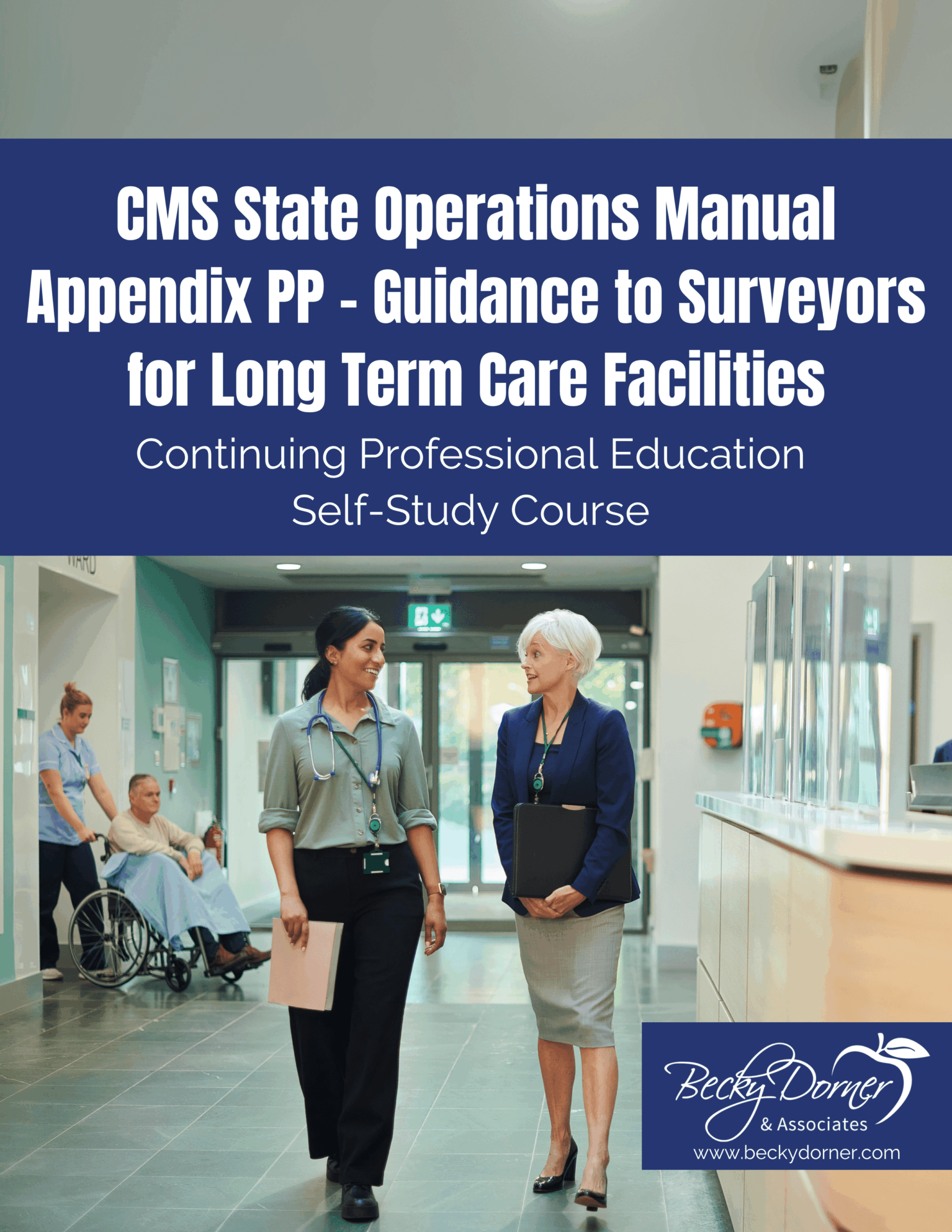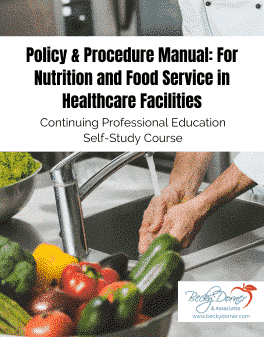Revised for v1.19.1 (October 2024)!
This is the perfect course for RDNs and NDTRs who work in long term care. Stay up to date on standardized protocols in the MDS 3.0 RAI. BONUS – this course provides the required Ethics CPE!
This course is based on the Centers for Medicare and Medicaid Services’ (CMS) Minimum Data Set (MDS) 3.0 Resident Assessment Instruments (RAI) Manual (v1.19.1 October 2024 revision) which is a document used for implementing standardized assessment for facility care management in nursing homes and non-critical access hospital swing beds. The purpose of the manual is to offer clear guidance about how to use the RAI correctly and effectively to provide appropriate care and create an individualized care plan for each resident. It also assists in tracking changes in the resident’s status, evaluating goals, and revising their care plan.
The RAI provides assessments for each resident’s functional capabilities and helps facility staff identify health problems. The assessment is performed on every resident in a Medicare and/or Medicaid-certified nursing homes/facilities. The MDS 3.0 tool includes the individual resident in their assessment process and focuses on standardized protocols. The care plan is then developed as a resident’s path toward maintaining or achieving their highest level of well-being. The RAI manual is composed of three areas: The Minimum Data Set (MDS) Version, the Care Area Assessment (CAA) process and the RAI Utilization Guidelines.
The MDS Assessment data calculates the resident’s Patient Driven Payment Model (PDPM) classification for payment. The PDPM case-mix adjusted groups are determined using extensive information on the resident’s therapy and nursing needs, including ADL status, cognitive status, behavioral problems, and medical diagnoses. Coding Section K accurately will affect the PDPM score, including parenteral IV feedings/fluids and tube feedings. This is covered under PDPM non-therapy ancillary (NTA) services. Malnutrition is also captured using this system under the NTA comorbidity score calculation.
This course is appropriate for registered dietitian nutritionists (RDNs) and nutrition and dietetic technicians, registered (NDTRs) that are employed in skilled nursing facilities regulated by the Centers for Medicare and Medicaid Services. RDNs and NDTRs can benefit from reviewing the entire MDS manual to be familiar with the entire MDS. A continuing professional education case-study based exam helps the reader apply the information in the required reading to their work setting.
Course includes eDocument (including a link to the required reading in the course document), electronic test and 1 certificate with passing grade.










Reviews
There are no reviews yet.